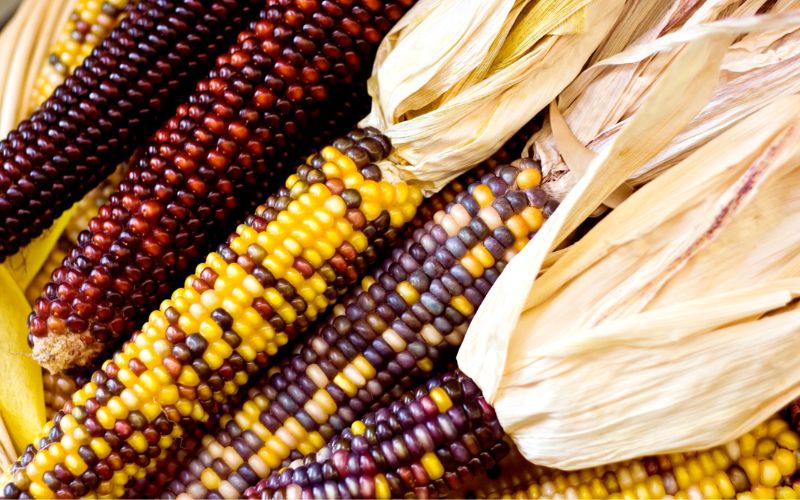
- Details
- By Native News Online Staff
Six tribal colleges and universities were named recipients of a new grant program to promote Indigenous Foodways.
Earlier this year, the Sovereign Equity Fund—a nonprofit focused on providing equitable funding access across Indian Country— announced the inaugural fund $2.4 million Cultural Foodways fund in collaboration with the Mellon Foundation and the Native American Agriculture Fund.
The fund will grant six tribal colleges and universities each $200 thousand over two years for projects focused on learning about, sharing, and safeguarding the artistic, cultural and humanistic aspects of Native foodways, according to the nonprofit’s announcement this week.
The institutions selected include: College of Menominee Nation in Wisconsin, Fort Peck Community College in Montana, Lac Courte Oreilles Ojibwe University in Wisconsin, Red Lake Nation College in Minnesota, Sisseton Wahpeton College in South Dakota, and Sitting Bull College in South Dakota.
Tribal college representatives said in statements that their individual grants would help enhance cultural foodways by connecting Indigenous ways of knowing with land and community.
"The visionary project of ‘Cultivating Indigenous Food Sovereignty’ holds the promise of a profound and lasting impact on our community,” said Sitting Bull College Program Manager Jennifer Martel in a statement. “Through the dissemination of traditional knowledge, our team aims to establish a nourishing curriculum deeply rooted in Indigenous wisdom. This will not only address immediate food concerns but will also foster a renewed sense of cultural identity. This project will create a legacy of knowledge, resilience, and sustainable practices that will fortify our community's bond with its heritage and nourish its future."
Tribal Colleges and Universities interested in future Cultural Foodways Fund grants can apply for the next application cycle in the spring of 2024.
More Stories Like This
Native Americans Could Be Hit Hard as Education Department Resumes Student Loan Wage GarnishmentHanging a Red Dress for Christmas: MMIP, Native Higher Education, and Hope for a Better New Year
Native Students Can Win $5,000 Scholarship, International Distribution in Pendleton Design Contest
American Indian College Fund Raises Alarm Over Plan to Shift Native Programs Away From the Dept. of Education
MacKenzie Scott Foundation Gives $5 Million Contribution to Little Priest Tribal College
Help us defend tribal sovereignty.
At Native News Online, our mission is rooted in telling the stories that strengthen sovereignty and uplift Indigenous voices — not just at year’s end, but every single day.
Because of your generosity last year, we were able to keep our reporters on the ground in tribal communities, at national gatherings and in the halls of Congress — covering the issues that matter most to Indian Country: sovereignty, culture, education, health and economic opportunity.
That support sustained us through a tough year in 2025. Now, as we look to the year ahead, we need your help right now to ensure warrior journalism remains strong — reporting that defends tribal sovereignty, amplifies Native truth, and holds power accountable.
 The stakes couldn't be higher. Your support keeps Native voices heard, Native stories told and Native sovereignty defended.
The stakes couldn't be higher. Your support keeps Native voices heard, Native stories told and Native sovereignty defended.
Stand with Warrior Journalism today.
Levi Rickert (Potawatomi), Editor & Publisher


